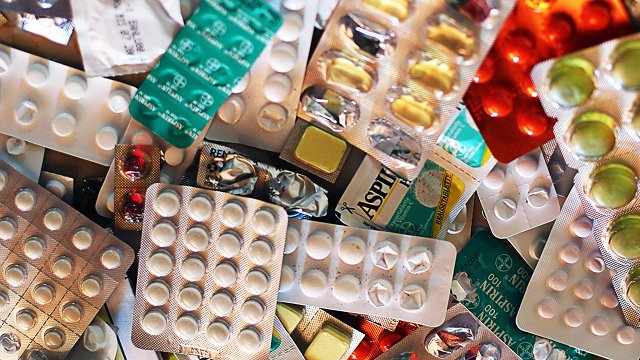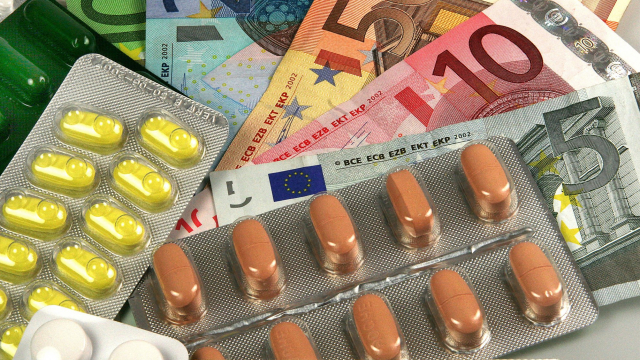In December, the rapid increase in virus intensity and the rise of injuries obtained on the streets filled clinics. While waiting in line, an ad appeared again and again in front of the patients on a large screen that offered almost a miracle cure. It claimed that the person who will rinse their mouth with it will be protected for several hours from Covid-19, the herpes virus, the human papillomavirus, and even from HIV, and other viruses not named, with nearly a hundred percent efficiency.
“De facto” called the distributor, the dentist Aiva Pakule, who also made similar statements in a telephone call, stating that HIV can be contracted while kissing though it is not transmitted through saliva.
Journalist: Can't this give people such a delusional feeling that they rinse and protect themselves from HIV? Not using a condom but rinsing the mouth?
Pakule: You cannot protect against sexual contact infections by mouthwash.
Journalist: But you advertise that it protects against HIV.
Pakule: Kissing. It [HIV] can be contracted like that…
The product advertised by the medical authorities has not been registered either as a medicine or as a food supplement. It is a cosmetic product, the distributor confirmed. She referred to clinical trials.
The information she sent to De Facto talks about individual studies in laboratory conditions and mentions the viruses of Covid, herpes, and influenza.
De Facto found out that a study whose findings could be trusted had been launched at Cardiff University. Scientists have pointed out that the biological mouthwash could help to destroy viruses, but it needs additional long-term studies to assess effectiveness. And that study hasn't yet been completed. But information about HIV prevention isn't available.
Excerpt from the phone call with distributor Pakule:
Journalist: It gives a delusional impression.
Pakule: What kind of delusional?
Journalist: You are promoting a cure for virus infections, not a mouthwash.
Pakule: Then it's exactly right. I am very much working on it, on every word, really, so that people see it, that it is not a mouth-washing agent, that it is a means of not having viral, bacterial, or fungal infections.
The head of the Consumer Rights Protection Centre (PTAC), Baiba Vītoliņa, said that the justification for making such statements must be very serious: "People can start to hope that it really helps to protect against some infections. And, yes, in my view, it could potentially be an unfair practice if there is no such evidence. Therefore, it really needs to be looked at in the medical treatment establishments – perhaps we should focus on what advertising is being distributed."
De Facto asked for comments from professionals in the infections sector, but they did not want to make a public statement about it.
In an e-mail response from the University of Latvia (LU), the associate professor of medicine at LU, Ieva Tolmane, said: “I do not know any quotable publication publishing a study that would demonstrate the effects of any oral rinsing product. Nor do the medical recommendations mention oral rinsing products in the prevention of these infections."
The specific ads were placed on monitors at the Veselības Centrs 4 (VC4) clinic and Riga municipality-owned 2nd hospital. The ads may have been in other institutions. The representatives of the two institutions pointed out that they had not assessed the content of specific advertising, but merely looked at the general principles. Monitors and the ability to place ads on them are provided by a collaboration partner called Real Media. They work directly with the medical authorities.
The head of the 2nd hospital, Sandris Petronis, said he had not seen the ad at all. However, as it was previously meant to terminate the contract, it would now take place more quickly and the monitor would be gone in the near future.
“I also agree with your opinion that there might be a misconception, maybe it's not a hundred percent correct advertising, so we also think it should be stopped. This may have contributed to the decision being made more quickly because we had an agenda for examining this issue on advertising policy in our hospital. Only this case accelerated the processes,” Petronis said.
VC4 stated that they have the right to require the firm to replace the advertising in one day in the event of irregularities and complaints.
VC4 Public Relations specialist Līga Putraima said: “In response to the information you provide, we have been in contact with the partner. The advertising period is over, it is no longer visible in our clinic at this time. We've updated control of ad content. The VC4 guideline is to respond to complaints as quickly and correctly as possible, and we are grateful to visitors for their attention.”
The PTAC promises to carry out an examination of the case in question whether it cannot be considered as an example of unfair commercial practices.




























